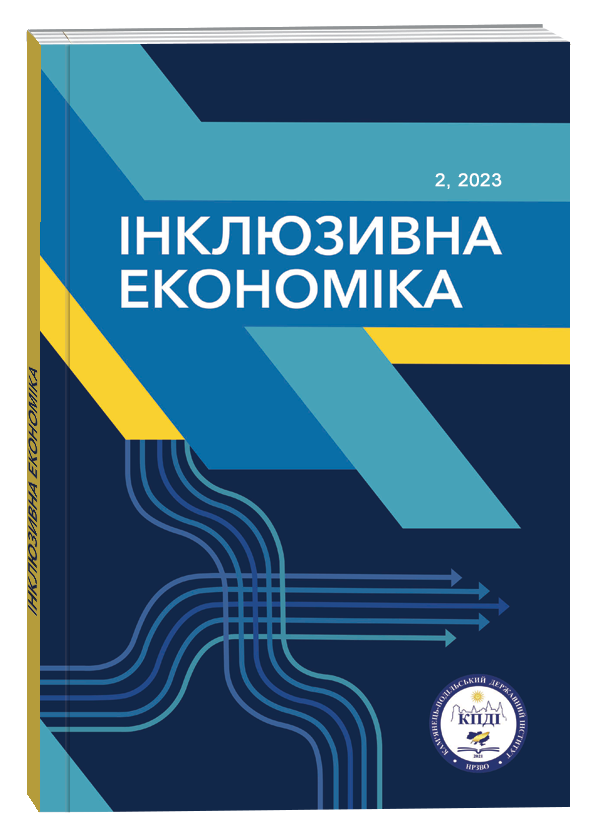FORMATION OF PROFESSIONAL COMPETENCE OF A LECTURER IN AN INSTITUTION OF HIGHER EDUCATION UNDER INCLUSIVE CONDITIONS
DOI:
https://doi.org/10.32782/inclusive_economics.2-7Keywords:
competence, student, professionalism, teacher, expertise, inclusionAbstract
The article describes the process of formation of professional competence of teachers in institutions of higher education in the process of professional activity in the conditions of inclusive education. Now, competence is interpreted as the ability or readiness to implement the acquired knowledge, skills, and abilities in real activity. Competence components are subject and operational knowledge, skills and abilities - ability and readiness to use them in activities and confidence in activities and responsibility for their results. In modern society, which is constantly undergoing changes, the high professionalism and professional competence of teaching specialists, teachers, has acquired an important importance, because the competitiveness of specialists is an urgent issue that is being prepared by a higher education institution. This directly applies to workers in the field of education with an inclusive population, because teachers must be competent in the scientific field of activity, because professional education has always been and continues to be aimed at the comprehensive development of the individual in order to prepare him for active and effective participation in public production with the greatest benefit for themselves and for society as a whole. In world educational practice, the concept of competence acts as a central, a kind of "nodal" concept, because the competence of an individual: combines the intellectual and practical components of education; the concept of competence contains the ideology of interpreting the content of education, which is formed from the result; the competence of the individual has an integrative nature, as it incorporates a number of homogeneous or closely related knowledge and experience belonging to broad spheres of culture and activity (informational, legal, etc.). Personal competence has a certain structure, the components of which are related to a person's ability to solve various problems in everyday, professional or social life. The structure of competence of a person includes: competence in the field of independent cognitive activity; in the sphere of civil and social activities; in the field of social and labor activity; competence in the household sphere; in the field of cultural and recreational activities. Among the knowledge and practical experience formed in the process of a person achieving a certain level of competence are the skills of self-education, critical thinking, independent work, self-organization and self-control, teamwork, the ability to predict the results and possible consequences of various solutions, establish cause-and-effect relationships connections, find, formulate and solve problems.
References
Ivanova, S. V. (2008) Funkcionalnyj pidhid do vyznachennja profesijnoi kompetentnosti vchytelja biologii ta organizacija ii vdoskonalennja v zakladi pisljadyplomnoi osvity [A functional approach to determining the professional competence of a biology teacher and the organization of its improvement in a postgraduate education institution]. Visnyk Zhytomyrskogo derzhavnogo universytetu im. I. Franka. Vyp. 42. S. 106–110. [in Ukrainian]
Pelagejchenko, V. (2009). Kljuchovi komponenty kompetentnosti vchytelja [Key components of teacher competence]. Vidkrytyj urok: rozrobky, tehnologii, dosvid. № 2. S. 55–60. [in Ukrainian]
Іванова С. В. Функціональний підхід до визначення професійної компетентності вчителя біології та організація її вдосконалення в закладі післядипломної освіти. Вісник Житомирського державного університету ім. І. Франка. 2008. Вип. 42. С. 106–110.
Пелагейченко В. Ключові компоненти компетентності вчителя. Відкритий урок: розробки, технології, досвід. 2009. № 2. С. 55–60.



